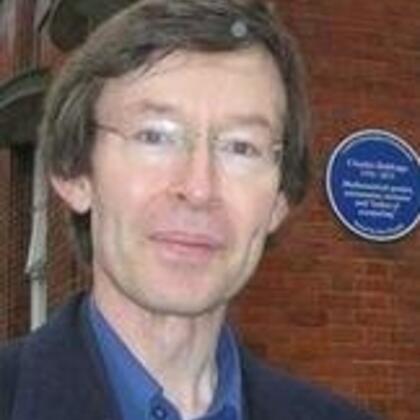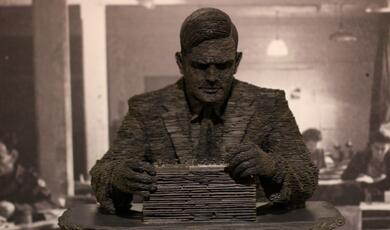
Professor Jonathan Bowen
Jonathan Bowen is Professor of Computer Science at Birmingham City University, Chairman of Museophile Limited (founded in 2002), and an Emeritus Professor at London South Bank University, where he established and headed the Centre for Applied Formal Methods in 2000. During 2006-07, he was a visiting academic at University College London. During 2007-09, he was a Visiting Professor at King's College, London. During 2008-09, he was an Associate at Praxis High Integrity Systems. From 2010-12, he was a Visiting Professor at the University of Westminster. In 2012, he was a Visiting Professor at the Pratt Institute in New York.
From 1995 to March 2000, Professor Bowen was a lecturer at the Department of Computer Science, University of Reading where he led the Formal Methods and Software Engineering Group. Previously he was a senior researcher at the Oxford University Computing Laboratory Programming Research Group where he worked under the guidance of Sir Tony Hoare, FRS. Between 1979 and 1984 he worked at Imperial College, London as a research assistant, latterly in the interdepartmental Wolfson Microprocessor Laboratory. He has been involved with the field of computing in both industry (including Marconi Instruments, Logica and Silicon Graphics Inc.) and academia since 1977. His interests include formal methods, safety-critical systems, the Z notation, provably correct systems, rapid prototyping using logic programming, decompilation, hardware compilation, software/hardware co-design, the history of computing and on-line museums. He holds an MA degree in Engineering Science from Oxford University.
Professor Bowen won the 1994 IEE Charles Babbage Premium award and managed the ESPRIT ProCoS-WG Working Group of 25 European partners (1993-1997) on Provably Correct Systems. He has produced over 150 publications and ten books, and has served on about 25 programme committees. He is the Chairman of the Z User Group and a member of the IEEE Computer Society and the ACM. In 1997, he was Conference Chair of the 10th International Conference of Z Users (ZUM'97, University of Reading, UK), Honorary Chair, workshop presenter and invited speaker at the 1st Museums and the Web Conference (MW97, Los Angeles, USA) and an invited speaker at the 3rd International Conference on Reliability, Quality and Safety of Software-Intensive Systems (ENCRESS'97, Athens, Greece). He was Programme Co-chair of ZUM'98 (Berlin, Germany).
In February 1999 Professor Bowen gave invited talks at the Institute of Systems & Information Technologies (ISIT), Kyushu, Japan and was the keynote speaker at the 2nd Joint Workshop on Systems Development, Cheju, Korea. During the summer of 1999 he was a Visiting Research Fellow at the United Nations University International Institute for Software Technology (UNU/IIST), Macau. In September 1999 he was the Publicity Chair of the World Congress on Formal Methods (FM'99, Toulouse, France), attracting over 500 delegates, the largest formal methods conference ever held. He also produced two books in 1999 on High-Integrity System Specification and Design and Industrial-Strength Formal Methods in Practice, both in the Springer-Verlag Formal Approaches to Computing and Information Technology (FACIT) series.
During 1999-2000 Professor Bowen guest edited two special issues of the Museum International journal on Museums and the Internet. In the year 2000 he has served on seven programme committees including a special issue on Dependable Computing of the Theoretical Computer Science journal and as a Chair of the International Conference of B and Z Users. He also contributed an Internet column to the magazine New Heritage. He joined the School of Computing, Information Systems and Mathematics (SCISM) at London South Bank University as Professor of Computing in March 2000. During 2001 he received the Freedom of The Worshipful Company of Information Technologists, the 100th Livery Company in the City of London. In 2002, Bowen was elected Chair of the British Computer Society FACS Specialist Group on Formal Aspects of Computer Science and Fellow of the Royal Society for the encouragement of the Arts, Manufactures and Commerce. He became a Fellow of the British Computer Society in 2004.


 Login
Login
